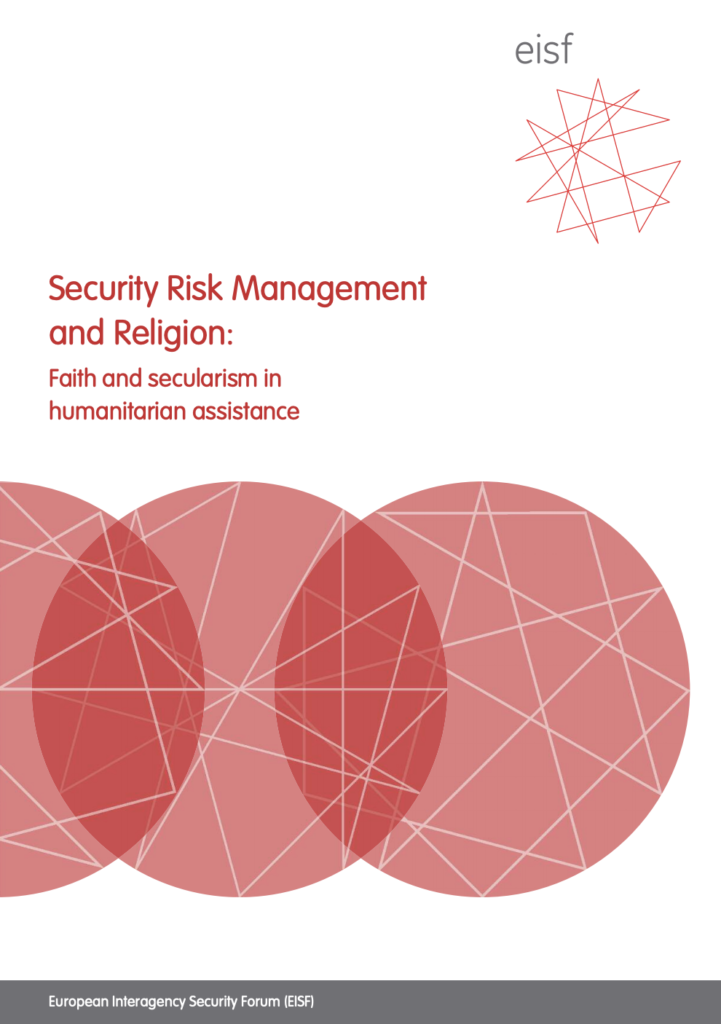‘There is an arrogance of secular agencies in that they consider themselves to be neutral. Nobody’s neutral. [We] need to go with humility into other people’s space. Secular agencies perceive themselves to be value neutral, but in fact are far more vehement about their value system than faith-based agencies.’ (Key informant, Islamic agency.)
Security Risk Management and Religion: Faith and secularism in humanitarian assistance examines the impact that religion has on security risk management for humanitarian agencies, and considers whether a better understanding of religion can improve the security of organisations and individuals in the field.
This paper by Lucy Hodgson (2014) gives an overview of the role of religion in humanitarian assistance, and its historical antecedents, and also studies how religion (and secularism) can impact and influence the identity of an organisation and the values, beliefs and practices of staff and partner agencies. The study examines differing opinions, approaches and vulnerabilities between secular and faith-based agencies and assesses how understanding the religious dynamic can assist with the selection of an appropriate security strategy, in particular with regard to the development of an effective acceptance strategy. This document also provides practical tools and guidelines for integrating religion into security risk management.
The study is designed to be of interest to faith-based and secular humanitarian agencies alike, and references ways to increase debate and dialogue within the sector to improve understanding of religion and its impact on risk management for all agencies.
This paper was written by Lucy Hodgson and edited by Raquel Vazquez Llorente, GISF Researcher, with the advice and input of Lisa Reilly, GISF Executive Director.
Suggested citation: Hodgson, L. et al. (2014). Security Risk Management and Religion. European Interagency Security Forum (EISF).
